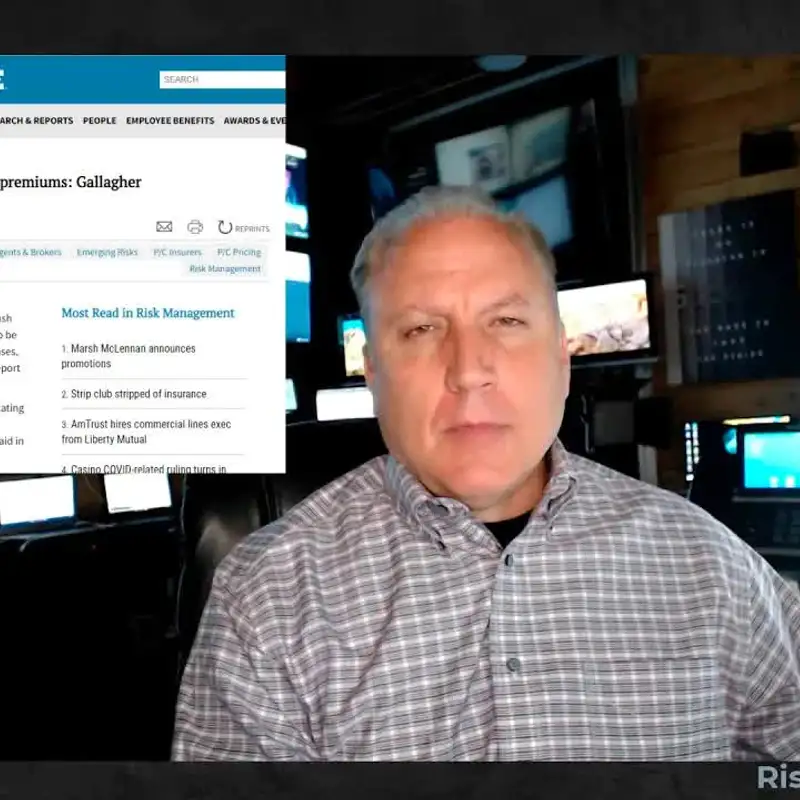Why Did Commercial Insurance Rates Spike in 2023?
Download MP3So how does inflation make its way into insurance rates? Well, it's kind of an easy thing to figure out. If things cost more money and insurance claims have to pay out more because repair costs, materials, and labor are higher, then they have to factor that into insurance rates. But there's a couple important factors to keep in mind whether or not you've been affected by this yet or not, in that it's a delayed reaction. Insurance companies are not allowed by law to anticipate higher costs and start charging you higher rates today. They have to wait till they actually incur the higher fees, even if they know they're coming. Most insurance commissioners and insurance licenses for the underwriters and insurers do not allow them to raise their rates based on what they think is going to be a higher payout of claims. They have to wait for those claims to happen. And Gallagher Insurance is one of the largest insurance brokers in the country, and they're seeing this pushing up costs and the premiums are going to increase.
But it won't happen right away. You know, inflation as an acute crisis has only been in the works for about six or eight months. You know, since the end of 2021 there was some inflation in 2020 and the beginning of 2021, but it really spiked up heavier in the last eight to 12 months. It's too early for that to really start showing up in insurance rates yet. But very soon, as there are renewals happening, the new rates will be calculated on the actuarials of the claims that have been paid out, and that's going to affect the renewal rates.
So if you're a commercial insurance client and have commercial coverage, business insurance, what do you do to prepare for this? Well, expect that your rates are going to go up. So first of all, whatever number you have in your budget on your P&L, increase it some percentage. Most estimates are 15 to 20 percent. So whatever your insurance coverage is, start out with a 15 percent maybe bump in what you have put in that line item on your P&L or your future budget, your pro forma.
Next thing to do is look at how can you reduce that. See what reductions or credits in coverage you can get. Maybe if your business has safety programs in place. Maybe if you allow the insurer to have different types of replacement costs, not necessarily at the same level—maybe, you know, functional replacement versus actual replacement. Maybe you can reduce some of your coverages. Now look, you don't want to put yourself in financial peril, but many times if you increase your deductibles, self-insure a little bit more on the low end at the front end, you can still be protected at the high end.
Meaning that if you have a 10 million dollar coverage with a 5,000 dollar deductible, if you go to a 10,000 dollar deductible you're still covered up to 10 million. You just have to come out of pocket a little more up front. Sometimes you can even raise your top end, your stop loss, to maybe 15 million and go up in deductible and still have a lower premium. Talk to your agent about combining coverages. Sometimes if you have a business owner's policy, you can get a package policy and combine some of your coverages. You may find other carriers have policies that have additional endorsements that will take over some of your separate standalone policies.
Look at your exclusions from coverage to make sure that there's nothing that's missing. But also if there's any additions you want to put on, sometimes those don't cost too much more, and that might be the difference between having to add on another policy rather than endorsing your existing policy. Just be prepared that, apples to apples, all policies being equal, your premiums will probably increase in the next 12 to 24 months.
In addition, there are some insurers that are leaving markets, which means that if your insurer leaves the market that you're in, you might have a non-renewal. And if you have a non-renewal, you want to know about that early so your broker, your agent, can shop around to find replacement coverage. And unlike homeowners or personal lines, a commercial lines policy sometimes is not cookie cutter, meaning one company to another might have completely different coverages, completely different underwriting. You might have to give loss runs again to put together your previous history. Hopefully your broker already has that, but just be prepared for a hardening market for commercial insurance, in large part because of inflation.
Also a part of additional liability being seen in the marketplace for cyber liability and even more moral hazards that are putting a higher claims rate on the same type of coverage than existed even five years ago.

